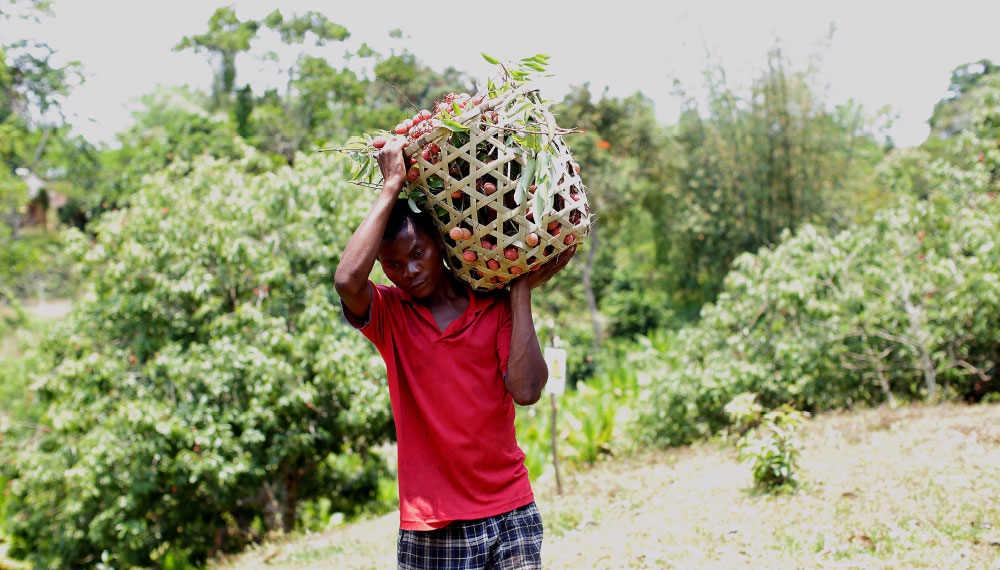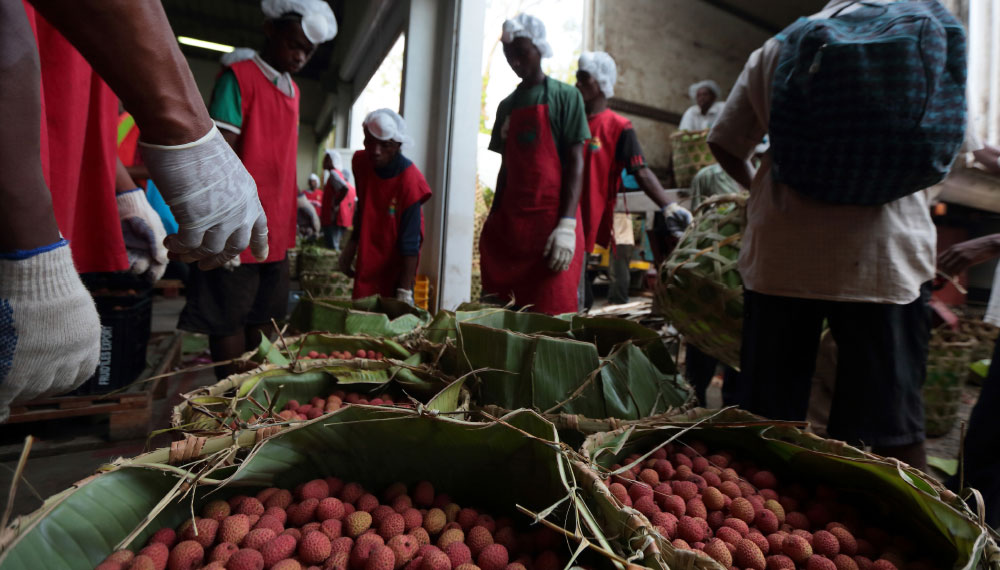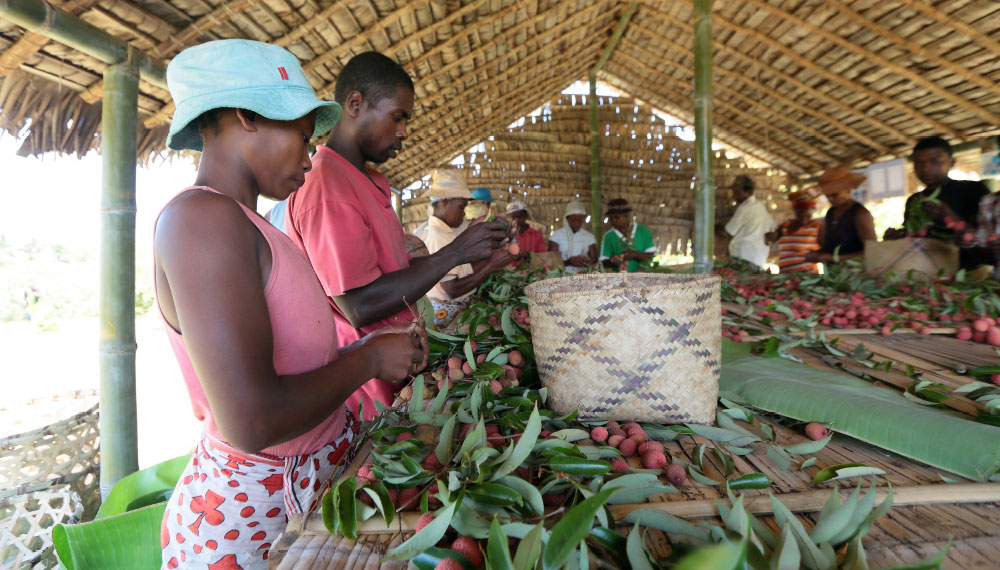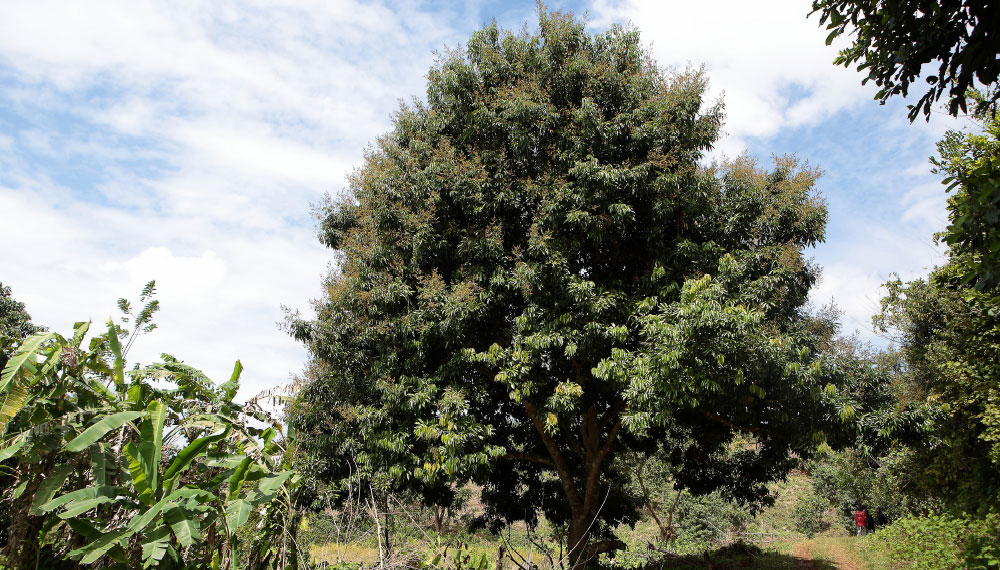Madagascar is one of the poorest countries in Africa and is ranked 163 out of 189 on the World Bank’s ‘ease of doing business’ index. This makes it difficult for businesses to flourish and drive economic growth.
One of the key pillars of the Madagascan economy is the lychee industry, currently accounting for about 70% of the lychees marketed in the EU. 80% of the Madagascan population live in rural areas, and a large proportion of these areas rely on lychee gathering for income.
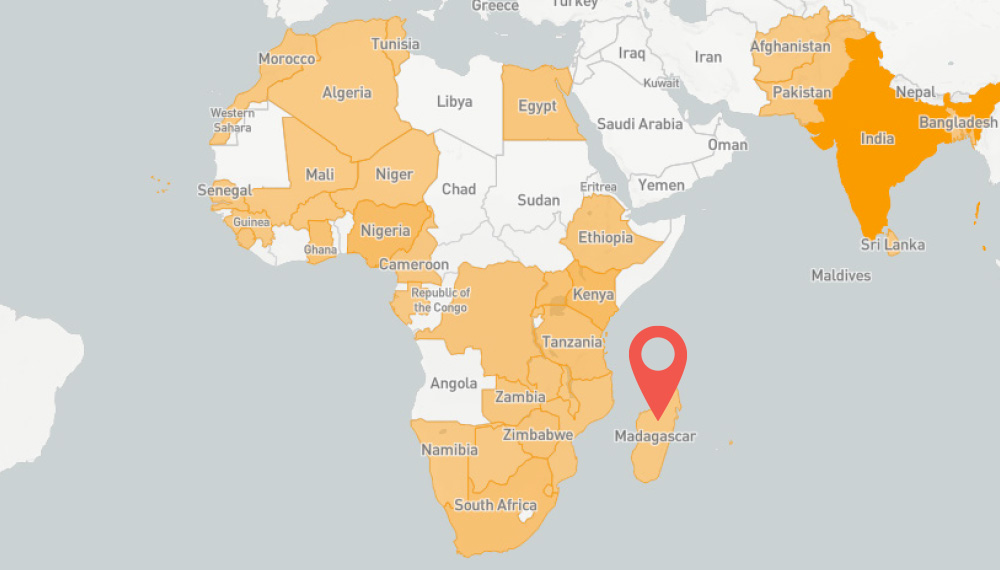
80%
80 per cent of the population in Madagascar live on <$1.25 a day
